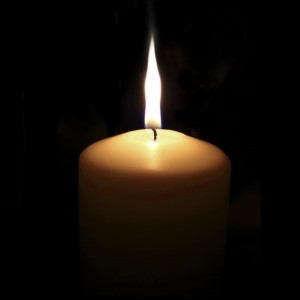Remembering Our Dead: Transgender Day of Remembrance Sadly Still Needed

Since 1999, on November 20 people around the world (today in more than 185 cities and twenty countries) observe Transgender Day of Remembrance (TDOR). On this day communities come together to remember those lost to anti-transgender violence in the past year. The event began as a memorial to an African-American transgender woman from Allston, Massachusetts, named Rita Hester, who was murdered in her own apartment in 1998. The community held a vigil in her honor, and since then, the date has become the annual Transgender Day of Remembrance.
If you ask most people within the trans community what the most important day for us is, you’ll generally hear that it’s not a day where we celebrate some milestone for equality or some great achievement by someone from our community, but the day we memorialize our dead. The Transgender Day of Remembrance remains a sobering commentary on the state of the transgender community. On this day we memorialize and honor those who won’t see the day when we can live freely in society without worry or fear. We mourn the dead, try to give hope to the living, and try to find a way forward.
The stories you hear about why people lose their lives for being trans are pretty horrifying. Last year, we memorialized an eight-year-old who was beaten to death by the father for expressing femininity. This year, we mourn a woman whose boyfriend felt embarrassed by her and decided to kill her to rescue his pride. Last year in my own community we mourned the loss of a beautiful young woman who was murdered for flirting with a man. I delivered the keynote address at Cincinnati’s TDOR ceremony that year in front of her mother. Seeing the pain of a parent who has lost a child is incredibly difficult. Knowing that her daughter died because of someone’s hatred made it all the more devastating. I could do nothing but hug her and hold her while she cried.
I was a baby activist then (and still am, really). That keynote was my first real talk in front of people who care about trans issues that are deeply personal to me. That speech was brimming with unshakable hope and optimism for our future. Sometimes I watch the video of that speech and I feel proud of what I said—and for doing it despite being nervous about getting up in front of some 150 people to spill my guts. Then there are times when I look at that video and think what a silly and naive child I was.
The truth, as it so often does, lies somewhere between those two extremes. There are times, when I want to give up being active in this movement. There have been times when I, and other secular activists I work with, have advocated for less overt religiosity in our community, or more inclusion of the various faiths and those with no religious faith at all. These appeals are met with strong rebuke. When we speak up for the people who are marginalized even within our own communities and call for inclusion of trans people of color, non-binary identified trans people, trans people with disabilities, etc, we are derisively told, “you can’t please everyone.” Even by other members of our own community. It’s days like that when I just want to quit. I want to stop what I’m doing and focus on my journey, my friends, and my life.
All that being said, I do have hope. Not just for myself but for this community. I’ve gotten to know people who forego careers to jump in the trenches to save the lives of trans kids. I’ve seen folks who forego time with their spouses, significant others, and loved ones to give support to those most vulnerable in our community. I’ve seen an atheist/secular community absolutely hungry for these conversations. Some of my friends joke with me about how I seem to be everywhere. I’ve been on at least twenty different podcasts (including my own, of course). I’ve been invited to speak at various events, both LGBT and atheist related. I’ve learned that people very much do want to help, and people very much do want to be involved.
I’ve been invited to give the keynote again this year at Cincinnati’s TDOR event. I will mourn. I will cry. I will embrace others in my community who feel the weight of this day on our shoulders. I will fear for those in that room who may not make it to next year. But I’ll wake up Saturday and get back to fighting for the day when there are no lists, no memorial events, and no pain over lives lost that didn’t have to be. Will you join me?
